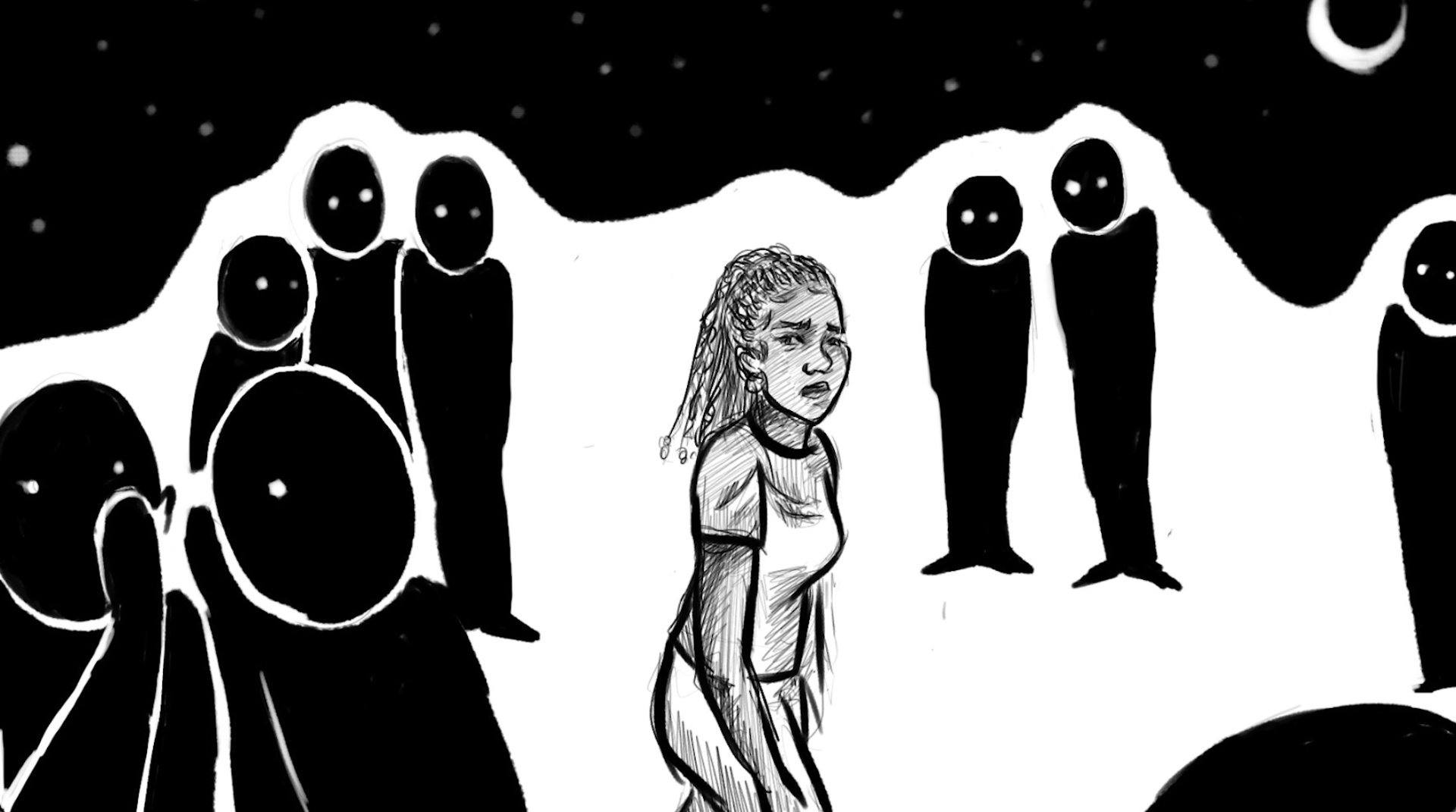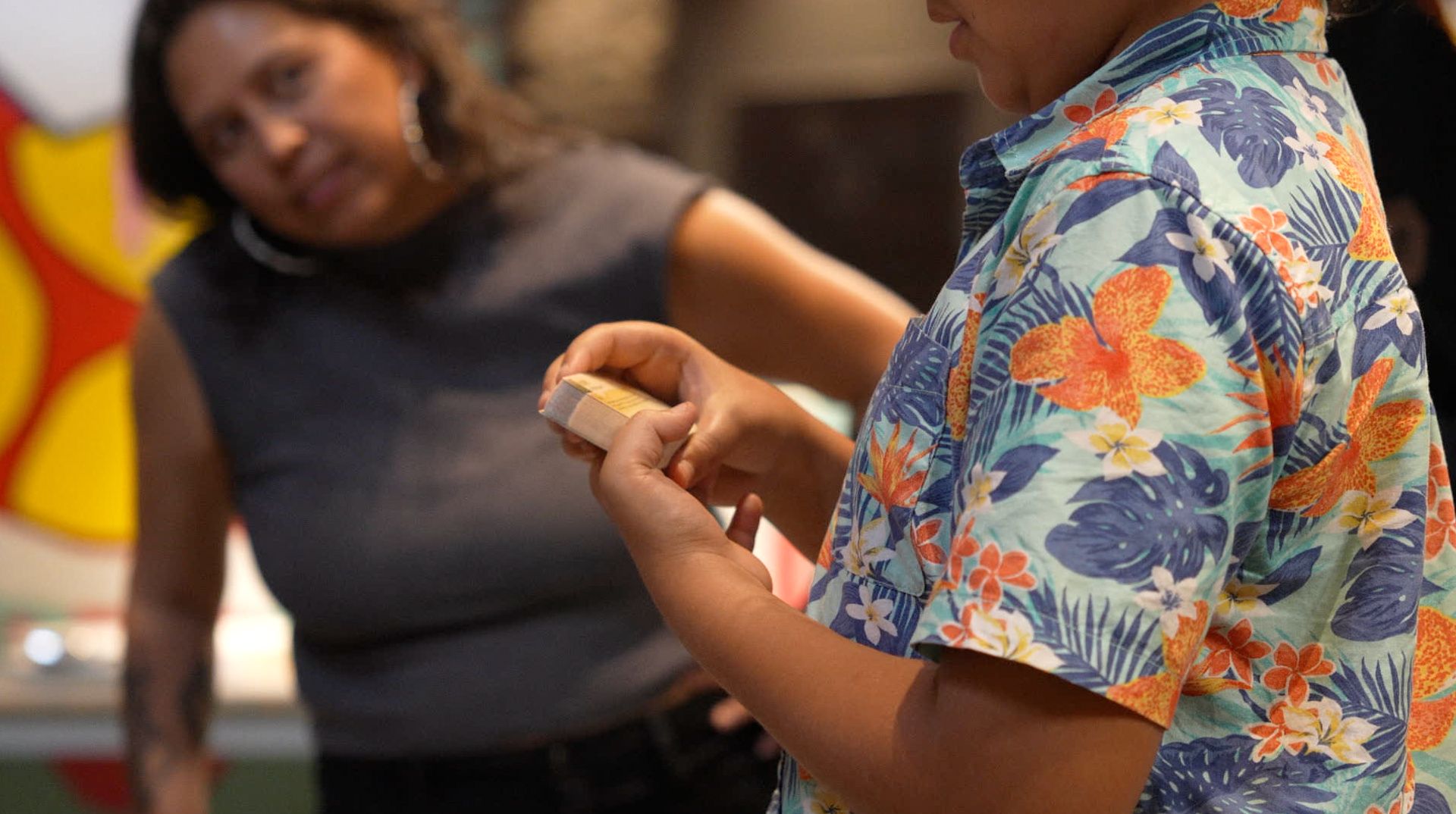Bill 21 is taking another step in its tumultuous journey: the country's highest judicial body, the Supreme Court of Canada, has decided to look into its validity. It's a decision that revives a divisive debate on the place of secularism, minority rights and Quebec identity. Almost six years after its establishment, what is the relationship between women wearing headscarves and this law? La Converse went to meet these women, who continue their fight on a daily basis, despite the shadow that this law casts on their professional and personal future. Report.
Adopted in June 2019, Law 21 prohibits authority figures, including judges, police officers, prison guards, and primary and secondary school teachers, from wearing religious symbols in the exercise of their duties.
This choice, which the Legault government describes as “collective and legitimate”, has nevertheless been the subject of repeated challenges before the courts for its consequences on fundamental freedoms. On Thursday, January 23, the Supreme Court announced that it will review the case, which was already considered by the Quebec Superior Court in 2021, and then by the Court of Appeal last year. While Quebec fiercely defends its right to decide its own laws, the federal government says it is ready to support the opponents before the Supreme Court.
A law that infringes fundamental rights
Seattle, Thursday, January 23, 6 a.m. Zeinab Diab, a doctoral student in social sciences at the University of Montreal, is glued to her screen. The wait is long and burdensome. In a few moments, the Supreme Court of Canada will deliver its verdict on whether or not it will hear the challenge to Bill 21.
When its decision to review the challenges finally came, a mixture of relief and hope took hold of her. “It's an important moment for the Muslim community, as this law primarily targets women who wear the hijab,” she comments.
According to her, Bill 21 does not strengthen secularism in Quebec in any way. “Quebec was already a secular and feminist society. The principles of separation of the state and religious institutions, neutrality and freedom of conscience were already respected,” she said.
But with this law, she continues, secularism and women's rights have been established as supreme values, at the expense of other fundamental rights. “Essential freedoms have been suspended: the right to security, to equality, to life. So, one wonders why derogate from so many rights? ” she wonders.
For Zeinab Diab, Bill 21 reduces secularism to a matter of appearance. “It has been restricted to what is visible on bodies, and Muslim women are paying the price,” she denounces.
To protect the law from potential legal challenges based on the Canadian Charter of Rights and Freedoms, the government invoked the notwithstanding clause. It allows a law to temporarily derogate from certain protections provided by the Canadian Charter. Bill 21 must therefore be renewed every five years to remain in force.
Bill 21 thus suspends the application of several sections of the Canadian Charter, in particular those that protect fundamental freedoms and legal rights. The items concerned are as follows:
- Section 2: Guarantees fundamental freedoms, including freedom of conscience and religion, freedom of thought, belief, opinion and expression, freedom of peaceful assembly, and freedom of association.
- Section 15: Guarantees the right to equality before the law and to the equal protection of the law, without discrimination, including religious discrimination.
Social death: the invisible effect of the law
In 2024, Zeinab Diab submitted her thesis, entitled Resisting Law 21: between social death and survival strategies, Muslim praxis and sisterhood in the quest for social justice.
Her investigation is based on the testimonies of 21 women, including 20 teachers — current, former or aspiring — and one lawyer. Through their stories, she highlights a profound feeling of exclusion and incomprehension in the face of a law that directly targets them, while denying their belonging to society. “These women are from here, they participate actively in Quebec society. However, we continue to perceive them as 'others.'" Contrary to an often repeated idea, Bill 21 does not target recent immigrants, but Quebec women, Zeinab insists: “Half of the women in my sample were born here, in Quebec. They are Quebecers, Francophones, Montrealers. However, they face a process of alteration in the public debate, as if they were never really 'from here.'”
She describes this experience as social death: a loss of social identity and relationships, an erosion of the sense of belonging. The testimonies collected also reveal a physical disconnection. Some women change their appearance so that their hijabs are not perceived as such. 'One woman told me, “I feel disguised to go to work. It's no longer me,'" illustrates Zeinab Diab.
Social death gradually sets in. “When you barely exist in public space, when your voice is not listened to, when your rights are infringed, you end up feeling invisible,” she concludes.
Gendered Islamophobia
Initially focusing on certain positions of authority, the application of Bill 21 was finally extended to the field of education, a sector where women are in the majority. For Joe Ortona, president of the English Montreal School Board (EMSB), this law represents a direct obstacle to the rights of women, especially those who wear the hijab.
“Because of the high proportion of women who work in Quebec schools, the law has a disproportionate impact on them, especially on Muslim, educated women with a degree in education, whose public role has been restricted,” he says. “Bill 21 remains an attempt to solve a problem that does not exist,” he explains in an article published on the EMSB website.
Zeinab agrees: “It's safe to say that the law applies to everyone equally, but when you look at the intersection of gender, religion, and racialization, it's clear who's having the biggest effect — it's gendered Islamophobia.” For her, Bill 21 not only creates barriers to employment, but it also restructures the labour market by excluding certain women from public service.
Faced with this situation, the EMSB also challenged the law based on the Canadian Charter of Rights and Freedoms, denouncing discrimination based on sex.
“Second class citizens”
On the evening of Tuesday, January 28, we welcomed Idil Issa and Lina El Bakir in the offices of La Converse. Both are law students. The two women know each other by name because of their activism, but it was at La Converse that they really met. Very quickly, the conversation came to life.
Lina El Bakir, 29, is completing her internship at the Bar, the last step before being able to practice as a lawyer. She wore dangling earrings, discreet under her gray hijab. Facing her, Idil Issa, 40, wore a white and pink turban carefully matching her pink jacket and sweater. Her accent, resolutely anglophone, illustrates her career: born in Winnipeg, she made a trip to Toronto, before settling in Montreal in 2016. Two women, two trajectories, but the same desire to contribute to a more just world.
Lina started her law studies in 2016. She dreams of a more inclusive justice system, where racialized people would finally be visible and recognized. But in June 2019, her world collapsed when she received a notification from Radio-Canada: Bill 21 was adopted. “It was morning. I woke up with that. I was in the third year of law at the University of Ottawa. I saw this notification and I was like, 'OK, but shit. What is the point of my studies?'” A sense of betrayal set in. The young woman, who cherished Quebec, cannot ignore the rupture that is happening in her. “I like Quebec culture, but today, saying that makes me nervous. Why should I prove my commitment to my province? Why beg to be accepted? If you don't accept me, too bad. There are no benefits from this law — neither social, economic, nor political. It's a diversion.”
Her clenched fists show a new determination: that of no longer suffering, but to act.
For Idil, the adoption of Bill 21 came as no surprise. After a career of 10 years in international communication, she returned to Montreal in 2016, in the midst of controversy over the ban on the wearing of the niqab to obtain certain public services. A seasoned activist, she founded the group Muslim women against racism and is closely following the evolution of the political situation in Quebec. “No, it did not surprise me,” she began softly. The CAQ had an absolute majority; they didn't need anyone to get their laws passed. It was unavoidable.”
It was in 2021 that Idil decided to take a new turn on the professional level. After years of activism, she feels a lack: “I was fighting for the rights of Muslim women, but I could see that it was not enough. My influence was limited. I needed concrete tools.” She then began studying law at McGill, which gave her a certain legitimacy in the public space. “When you are ME Idil, we can't interfere with your rights anymore without consequences. You know how to file a complaint, how to navigate the system. It's a different level of power.”
According to the law student, Bill 21 officially creates two categories of citizens. “It is simply a law that creates structural inequalities and second-class citizens,” she says.
She goes on to explain a very concrete consequence of this law: “Imagine a Quebec school director who must hire a teacher. Two candidates have exactly the same qualifications. But the law requires him to eliminate anyone who wears a religious symbol. It's not just an unfair law. It is a law that forces discrimination.”

Woman, racialized, Muslim: being on all fronts
“We know very well that laws have normative power,” explains Lina. "Once adopted, they shape mentalities. When Trump introduced his travel ban targeting nationals of certain Muslim countries, hate crimes exploded. He was sending a message: 'It is okay to be prejudiced against Muslims. They are all dangerous...' It's the same here. Bill 21 has implicitly given the green light. It legitimized the idea that discrimination is acceptable. Overnight, people felt empowered to say to themselves about us, 'Now I have the right to discriminate against you, because the law says it's okay. '”
This invisible and heavy pressure that we feel on a daily basis.
From that moment on, Lina is on the alert when she is n public: “Imagine, I take the subway and, unconsciously, I analyze my environment. Who is around me? Who is looking at me? Is anyone staring at me? I also ask myself, 'Am I too close to the edge of the dock? If someone pushes me, do I fall on the rails?'”
She made a gesture, as if she were sticking to the wall. “And when I enter the subway, I instinctively stick to the ends.”
“I am doing exactly the same thing! ” Idil said. Why? They answer in chorus: “We need to see if there is a danger.”
“Mentally, the effect is exhausting,” said Lina. At the end of the day, you go home and you're exhausted. And Bill 21 has only reinforced this feeling of being perceived as 'the other.' It doesn't matter that you speak French, that you know the culture, that you have been here for years... You are still a stranger in the eyes of many”, says Lina, bitterly.
Since 2019, many women have mobilized to denounce what they consider to be the Islamophobic nature of this law. However, they are now more discreet and no longer dare to express themselves. According to Idil and Lina, the adoption of Bill 21 has made it difficult to speak out, both in the community and on the public scene.
“There are very influential men in the [Muslim] community who are not at all happy with me,” says Idil. Because they were the ones who were previously used to represent the Muslim community. Now, it is the first concerned who speak out, who tell about their experience, who speak out. 'But how dare you?' she said, frowning, as if to imitate them.
“I'm trying to have discussions with them, but if you saw my text messages, they're not normal conversations: everything is in capital letters, they're screaming! ”
“Regardless, what I know is that this space belongs to Muslim women. It is their voice that needs to be heard. I will never give up on that. So yeah, I understand why it's so hard to express yourself. There are consequences. And it's not easy at all.”
She glanced at Lina, who agreed. “And there is fatigue... Since 2019, we have been saying the same things again and nothing has changed. They don't listen to us”, comments Lina.
Stifled speech
Only 0.6% of speaking time during the public consultations preceding the adoption of Bill 21 was granted to women teachers wearing the hijab. However, the word ”Scarf ” came back in 73.8% discussions about religious symbols. Source: Moderation or extremism? Critical views on Bill 21
From her office at Laval University, professor and researcher at the Department of Information and Communication Khaoula Zoghlami spoke tous by videoconference. She looked back on the conclusions of her study published in the book Moderation or extremism? Critical views on Bill 21, where she analyzes the speaking time granted to Muslim women wearing headscarves during the public consultations of the Committee on Institutions on Law 21 in 2019.
“The figure is overwhelming, she points out. 0.6% of the speaking time was given to Muslim teachers directly affected by the implementation of this law.” She put her coffee cup down for a moment, before picking it up again. “Originally, it was not intended that these women would be able to testify. Samira Laouni was invited at the last minute, through her organization Communication-Ouverture-Rapproachement Interculturel (C.O.R.), in order to fill vacancies after the withdrawal of other witnesses. Idil Issa intervened through the Fédération des femmes du Québec. Bouchra Chelbi was one of the four witnesses of the Inclusion Quebec Coalition. In other words, they were not invited to share their perspectives. And then, it was only after three days of hearings that the only teacher, Chelbi, was finally able to speak. Before that, numerous witnesses, chosen by the government, took turns to undermine credibility, infantilize nd even portray ngerous.” She continues, more firmly: “The parliamentary committee was not there to hear them, but to respect a protocol. Nothing more. They were unwelcome in this space.”
However, the CAQ government insisted that Bill 21 did not target any community in particular. But the analysis of parliamentary speeches proves the opposite: the terms associated with Muslim women's dress (veil, hijab, headscarf, niqab and burqa) have been repeated 296 times, representing 73.8% of all terms used to refer to religious symbols.
Khaoula sighs. “We are told that this law is not aimed at a particular category of women or a religious minority, but in reality, it is false. Their headscarves are considered to interfere with their functions and their ability to act and think. That's why we don't even think it useful to listen to them. In fact, they don't care! ”
For the researcher, the “headscarf” has recently become much more than just a subject of debate: “It has become a tug of war between the provincial and the federal. A sovereignty issue. A way for Quebec to assert its independence from the Canadian government. These women are scapegoats.”
What if the Supreme Court of Canada were to cancel Bill 21? “In Quebec, this would not be perceived as a wrong to be repaired, but as a federal interference,” she says.
A possible way out?
For Idil, no solution other than resistance is possible. “We have the right to lead our lives as we want. That is our social contract. I have the right to choose what is best for me, just like you, you have the freedom to make your own choices.” She raised both hands: “They don't understand. But we will not give up! Never in life! ”
Lina recognizes that the fight is far from over. But one thing gives him hope: “Today, there are more and more young girls who wear the hijab in law. They too will take over.” A smile lights up her face. Although she hesitates to continue in this field, aware of the obstacles that await her, she remains proud of those who, without fear, will continue to move forward.
At the time of writing, the date of the hearing on the challenges to Bill 21 is not yet known. In the meantime, the appointment of Robert Leckey to the Quebec Superior Court, announced on January 30, 2025, aroused a lot of reactions. Former Dean of the Faculty of Law at McGill, he has already publicly expressed his unease with this law.
An announcement that worries Simon Jolin-Barrette, one of the main architects of Bill 21, in particular, who fears the influence of this appointment on future decisions.








%20(1).jpg)
.jpg)
.jpg)